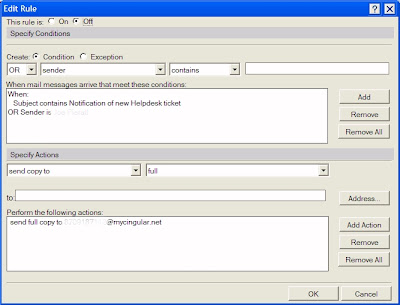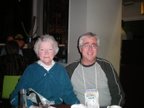Joy to the world, the Lord is come! Let earth receive her King;
Let every heart prepare Him room, And Heaven and nature sing, And Heaven and nature sing,
And Heaven, and Heaven, and nature sing.
How quickly this year has rolled past! Cindy and I are running behind -- we just returned from a business trip to the UK and are now trying to get in gear for the fast approaching holiday. We traveled to London the Monday following Thanksgiving and stayed at St Albans, a historic little town of about 125,000 north of London. It has lots of history -- dating back as far as the Roman times. I worked there for 2 days, then we traveled to Wales -- which was just beautiful -- for work over the weekend, then back to St Albans for the rest of the week, returning on a long, long flight Friday, December 7. It was all a tremendous blessing that neither of us would have ever thought we could have enjoyed. You can see comments and links to our pictures at:
Joy to the earth, the Savior reigns! Let men their songs employ;
While fields and floods, rocks, hills and plains Repeat the sounding joy, Repeat the sounding joy,
Repeat, repeat, the sounding joy.
Joseph graduated cum laude from University of Central Arkansas with double majors in Communications and Writing. During his last semester, he interned at Arkansas Educational Television Network which has its headquarters there at the university. He since was hired by AETN as an associate producer and has been working all through the fall on a broadcast project for which he is now writing the music score. He is getting to apply many of the talents he has developed over the years in a medium he really enjoys.
No more let sins and sorrows grow, Nor thorns infest the ground;
He comes to make His blessings flow Far as the curse is found, Far as the curse is found,
Far as, far as, the curse is found.
We have had a number of health challenges during the year. Things were going well with Cindy's chemo treatments, such that we asked for and received a break from the treatments beginning in June. Cindy has felt better and better throughout the summer and fall. Shortly before Labor Day, she began having tremendous problems with breathing and activity -- then the night of Labor Day, she had to be hospitalized, learning that what she had been experiencing was congestive heart failure. We were fortunate to be able to get good treatment for that and she is doing much better in that regard. However, after returning from the UK, her routine scans for cancer revealed that some of the growths that had been under control previously were now growing and becoming troublesome again. Her weakened heart condition will make that more difficult to deal with and she is in the prayers of many.
With Cindy's heart failure, we had to make a difficult decision about caring for Eddie in our home and he is now being cared for in a nursing home nearby. Cindy gets to visit him almost daily and he is still a joy to us.
He rules the world with truth and grace, And makes the nations prove
The glories of His righteousness, And wonders of His love, And wonders of His love,
And wonders, wonders, of His love.
You may have noticed that I have included the words to Isaac Watts' hymn "Joy to the World" in our letter this year. Those people of faith in years-gone-by proclaimed something we have forgotten in our world of turmoil. Jesus came to set creation and, most importantly, people free from the damage done by sin -- wherever it is found. To replace the curse with blessing. To overcome evil with good. He is the ruling King, not just in some future time, but now. He wants us to enjoy it with him.



